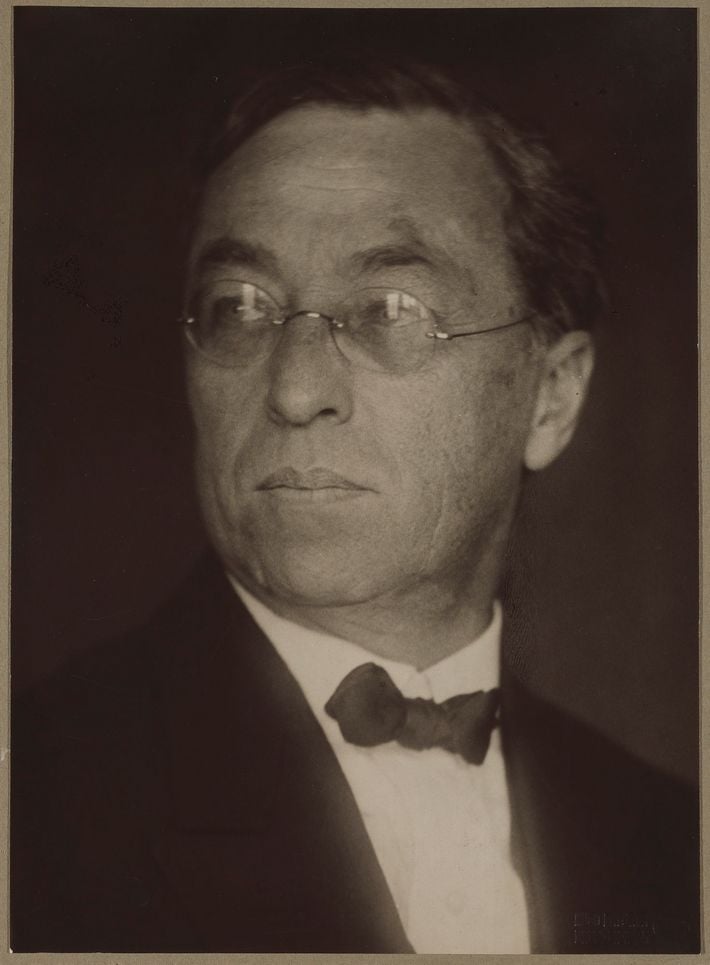Art World
As Abstract Pioneer Wassily Kandinsky Was Breaking Down Barriers in Painting, He Was Also Writing Experimental Poetry. Read It Here
Read four poems from Kandinsky's 1912 collection "Sounds," newly republished by Yale University Press.

Read four poems from Kandinsky's 1912 collection "Sounds," newly republished by Yale University Press.

Wassily Kandinsky

Blue, Blue got up, got up and fell.
Sharp, Thin whistled and shoved, but didn’t get through.
From every corner came a humming.
FatBrown got stuck—it seemed for all eternity.
It seemed. It seemed.
You must open your arms wider.
Wider. Wider.
And you must cover your face with red cloth.
And maybe it hasn’t shifted yet at all: it’s just that you’ve shifted.
White leap after white leap.
And after this white leap another white leap.
And in this white leap a white leap. In every white leap a white leap.
But that’s not good at all, that you don’t see the gloom: in the gloom is where it is.
That’s where everything begins . . . . . . . . . . . . . . . . . . . . . . . . . . . . . . . . . .
. . . . . . . . . . . . . . . . . . . . With a Crash . . . . . . . . . . . . . . . . . . .. . . . .. . . .
It was torn in two. I took it in both hands and held the two ends together. Something grew all around. Close around me. But nothing of it was to be seen.
I thought there wasn’t anything there. But still I couldn’t go forward. I was like a fly inside a cheese bell.
I.e. nothing visible yet still impossible to overcome. It was even empty. In front of me, all alone, stood a tree, actually a sapling. Its leaves green, like verdigris. Dense like iron and just as hard. Little bloodshimmering red apples hung from its branches.
That was all.
Nepomuk had his beautiful new dress coat on when he sat himself down on the little round flat hill.
Down below the little blue green lake caught his eye.
Nepomuk leaned his back against the trunk of the little white green birch tree, pulled out his big long black oboe and played many beautiful songs that everybody knows. He played for a long time with deep feeling. Maybe going on two hours. Just as he started up with “There came a bird a-flying” and had gotten to “a-fly,” Meinrad came running up the hill all hot and out of breath and with his crooked, pointed, sharp, curved, shining sword struck off a nice fat chunk of the oboe.
The woods grew deeper and deeper. The red trunks bigger and bigger. The green crowns heavier and heavier. The air darker and darker. The bushes lusher and lusher. The mushrooms thicker and thicker. Until there was nothing but mushrooms to walk on. It was harder and harder for the man to walk, to force his way through without slipping. But on he went anyway, repeating faster and faster and over and over the same sentence: — —
The scars that mend.
Colors that blend.
To his left and slightly behind him walked a woman. Every time the man finished his sentence, she said with great assurance and rolling her r’s vigorously:
verrry cleverrr.
Reprinted from Sounds by Wassily Kandinsky, translated and with and introduction by Elizabeth R. Napier, published by Yale University Press © 2019. Reprinted by permission. The publication is available at Yale Books.